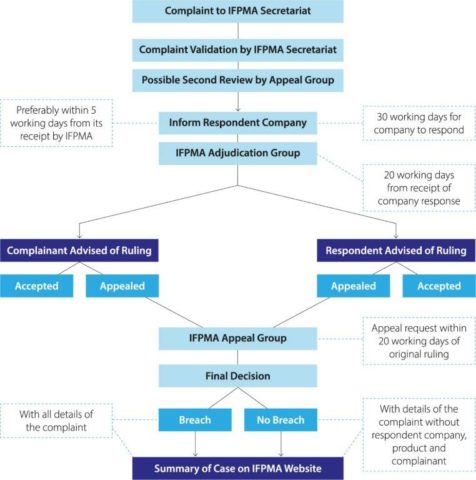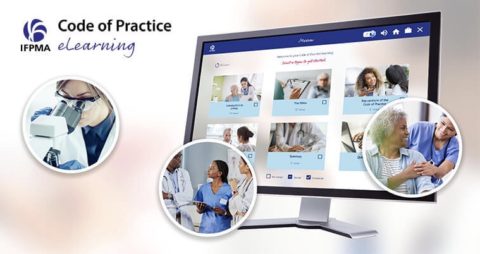
Ethics
and Business Integrity
IFPMA Complaint Operating Procedure
Operating Procedure
The IFPMA Code of Practice Operating Procedure is an integral part of the Code, as it explains the precise steps taken by IFPMA when a complaint is received.
Any healthcare professional, company or member of the general public may file a complaint reporting a breach of any provision of the IFPMA Code. Complaints can be reported to the IFPMA Secretariat at code@ifpma.org or through the ‘Code of Practice Complaint Submission Form’.



The IFPMA Code establishes standards for the ethical promotion of pharmaceutical products to healthcare professionals, and outlines appropriate interactions with stakeholders such as patient organizations. The IFPMA Code Operating Procedure provisions are delineated in Appendix I of the IFPMA Code of Practice (2012).
The IFPMA Code Complaint Procedure is a four step procedure:
Step 1: Validation
A valid complaint ought to be genuine, submitted in good faith, and contain sufficient information to be processed within the scope of the IFPMA Code of Practice. The alleged breach must not be subject to a member association’s national jurisdiction or currently under investigation by another member association.
Step 2: Adjudication
If the alleged breach is processed and validated, the complaint is referred to a panel of adjudicators, an independent ad hoc group of experts selected from national member associations. Both the complainant and the subject of the complaint are notified of the panel’s decision.
Step 3 Appeal:
If the adjudicators’ decision is appealed by either the complainant or the company, a second ruling may be requested. A separate appeals panel, comprising of experts selected from national member associations, will consider the appeal.
Step 4 Publication of the Outcome:
When a breach of the IFPMA Code has been ruled and is not disputed by the company, or a breach has been upheld by the adjudication panel, details of the complaint are made public via the IFPMA website.

The IFPMA Code applies to regions where no local codes or appropriate regulatory structures exist, or in cases where an IFPMA member company is not a member of a local/regional association.










